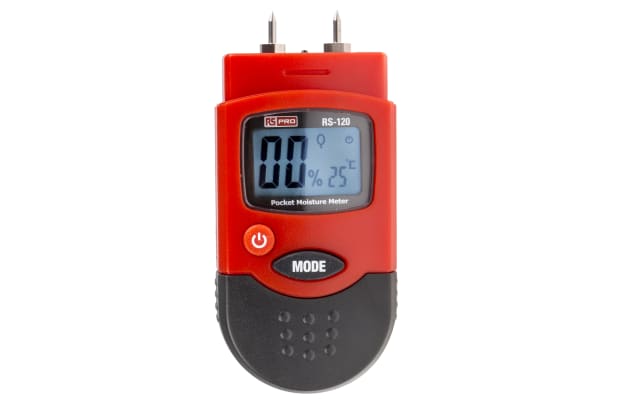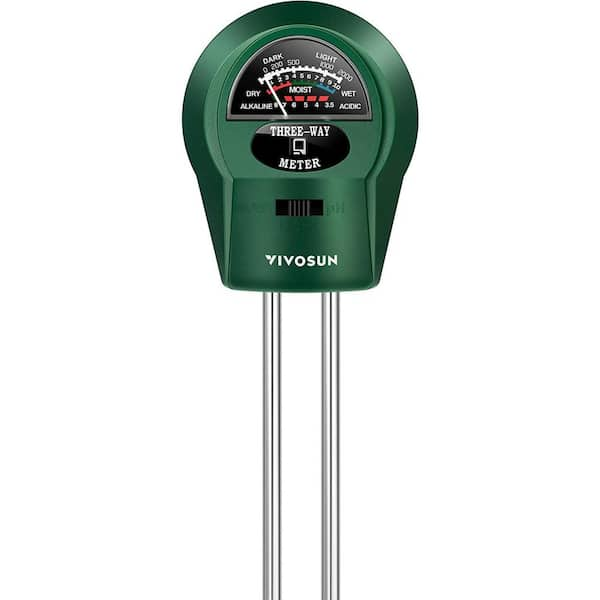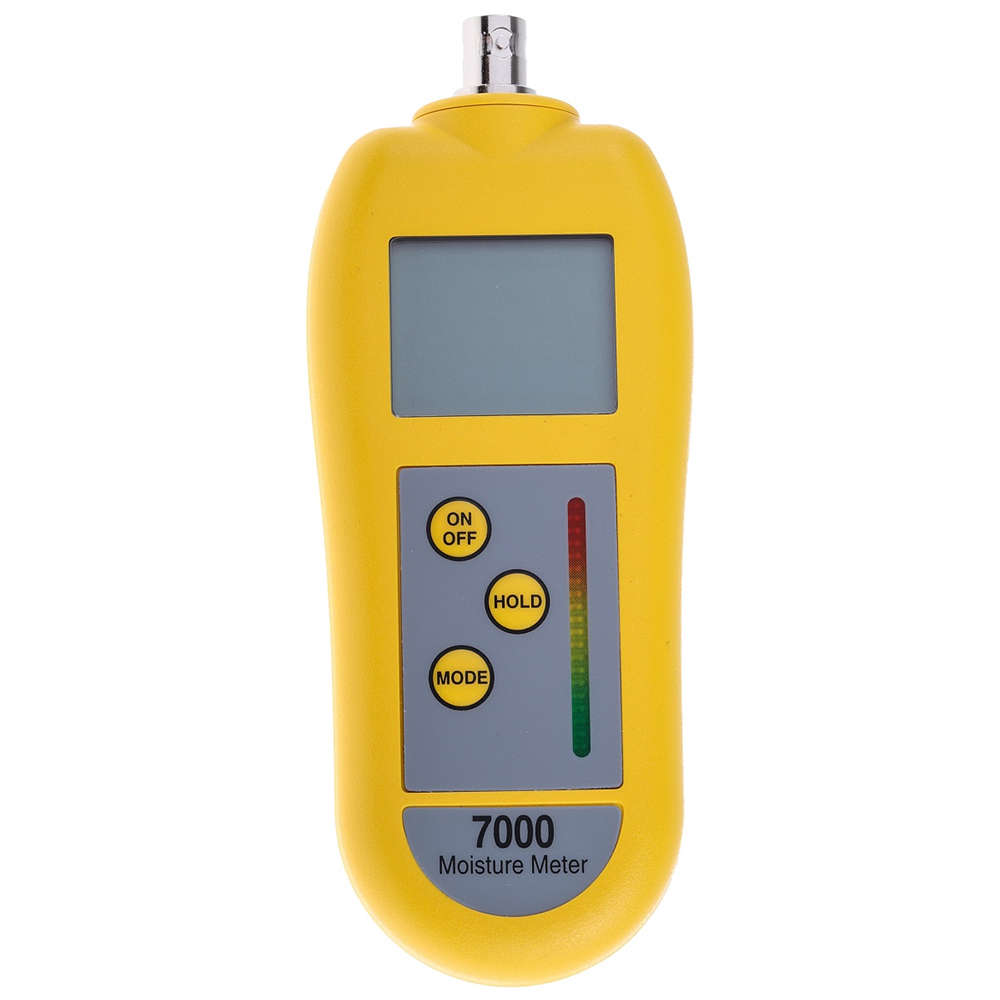The Ultimate Overview to Choosing the Right Moisture Meter for Your Needs
The Ultimate Overview to Choosing the Right Moisture Meter for Your Needs
Blog Article
The Ultimate Overview to Moisture Meters: A Comprehensive Overview and Exactly How They Can Save You Money
In the realm of structure upkeep, building, and numerous markets, the relevance of properly determining dampness degrees can not be overstated. Moisture meters function as indispensable devices in discovering and keeping track of moisture web content in materials, assisting in stopping expensive damages and ensuring the top quality of products. Recognizing the subtleties of different kinds of dampness meters, their applications, and the potential cost-saving benefits they use can be a game-changer for services and professionals alike. Discovering how these tools can not only simplify procedures however also add to monetary cost savings is a trip worth getting started on.
Kinds Of Moisture Meters
Different sorts of wetness meters are readily available for different applications in numerous markets. One common kind is the pin-type dampness meter, which gauges the electric resistance in between two pins inserted into a product. This kind appropriates for timber, drywall, and other structure products. Pinless dampness meters, on the various other hand, use electromagnetic sensing unit plates to scan a larger location without causing damages to the product's surface area. These meters are suitable for quickly analyzing moisture levels in large areas such as wall surfaces and floorings.
Furthermore, there are likewise specialized dampness meters made for specific materials like hay, soil, or grain. These meters give precise moisture readings customized to the distinct properties of the product being evaluated. Infrared dampness meters gauge the thermal homes of a material to identify its wetness content non-invasively, making them beneficial for applications where pin or pinless meters may not be ideal. Recognizing the different kinds of wetness meters available can aid markets choose one of the most suitable device for their details dampness dimension requirements.

Advantages of Utilizing Moisture Meters

In addition, using wetness meters can lead to enhanced energy effectiveness. In agricultural settings, wetness meters play a crucial role in enhancing plant returns by making it possible for farmers to check dirt dampness degrees and make educated watering choices.
How to Choose the Right Moisture Meter
Selecting the suitable moisture meter involves considering essential elements such as material compatibility, dimension array, and calibration precision. When selecting a wetness meter, it's necessary to guarantee that the meter appropriates for the particular material you will certainly be screening. Various materials have varying electric residential or commercial properties that can affect dampness analyses, so choosing a meter developed for your material is click reference crucial for exact you could try these out outcomes. Additionally, consider the dimension variety of the moisture meter. Make certain that the meter can identify wetness levels within the array required for your applications. Calibration accuracy is an additional vital element to bear in mind (Moisture Meter). Choose a moisture meter with reputable calibration to ensure consistent and exact readings. Some meters might require routine calibration modifications, so understanding the calibration procedure is very important. By carefully reviewing these aspects, you can choose a dampness meter that satisfies your needs and supplies accurate dampness measurements for your tasks.
Proper Methods for Moisture Meter Use
To guarantee exact moisture readings and make best use of the performance of a dampness meter, using correct methods is necessary. When using a pin-type moisture meter, insert the pins or probes into the product being evaluated up until they make full get in touch with. Guarantee the pins are vertical to the surface to get the most specific reading. For pinless moisture meters, hold the device level against the material and relocate gradually to cover the whole location for an average reading. It's vital to calibrate the moisture meter according to the material being tested to enhance precision. Take numerous readings across the surface area and ordinary them out for an extra trustworthy result. Additionally, make certain that the material being examined is adapted to the environment to avoid skewed analyses. Routine upkeep of the wetness meter, such as cleaning the pins or sensor, is also important to guarantee precise and regular readings. By adhering to these appropriate techniques, customers can count on their wetness meter to provide reliable dampness levels, assisting in protecting against costly damage or guaranteeing quality in different applications.

Price Financial Savings Via Moisture Meter Applications
Exactly how check out here can the strategic utilization of wetness meters lead to substantial price savings throughout various markets? Moisture meters play a vital function in price savings by preventing possible damages and making certain quality assurance in different industries. In the agriculture sector, moisture meters aid in identifying the optimal time for collecting plants, avoiding excess or over-drying dampness that can influence the last item's top quality. This precise tracking aids farmers stay clear of unnecessary losses and maximize their return.

In addition, in the food processing sector, dampness meters are essential for monitoring product top quality and ensuring compliance with safety regulations. By accurately determining dampness web content in food, makers can stop spoilage, preserve quality, and reduce waste, resulting in considerable price financial savings. Overall, the strategic application of dampness meters is a useful financial investment that can lead to significant expense reductions and enhanced efficiency throughout various sectors.
Final Thought
In conclusion, wetness meters are beneficial devices for discovering and gauging wetness levels in various materials. By utilizing the best dampness meter and complying with appropriate techniques, customers can effectively avoid costly problems caused by excess dampness.
Dampness meters offer as indispensable devices in detecting and keeping an eye on moisture web content in materials, aiding in stopping expensive problems and making sure the high quality of products. Infrared wetness meters determine the thermal buildings of a material to establish its dampness web content non-invasively, making them beneficial for applications where pin or pinless meters may not be ideal.Wetness meters offer vital advantages in accurately checking and assessing moisture levels in diverse products and atmospheres. In agricultural setups, wetness meters play a vital function in maximizing crop returns by allowing farmers to monitor soil moisture levels and make educated irrigation decisions.In conclusion, moisture meters are useful tools for finding and determining dampness degrees in various materials.
Report this page